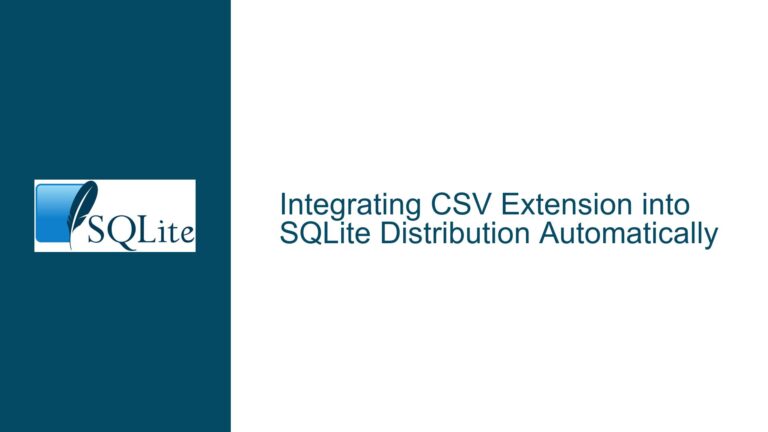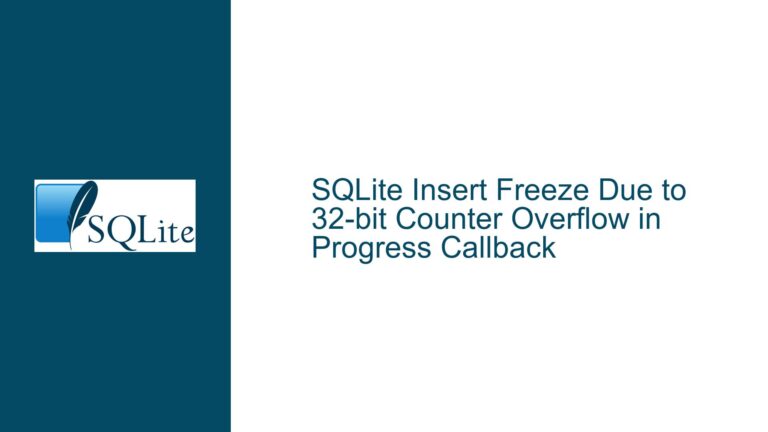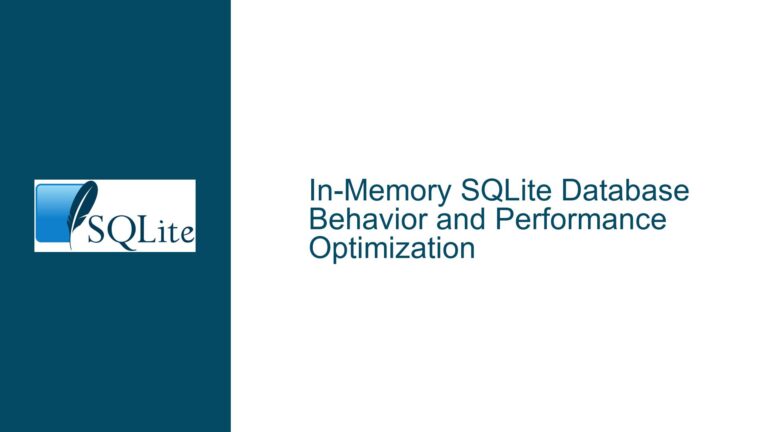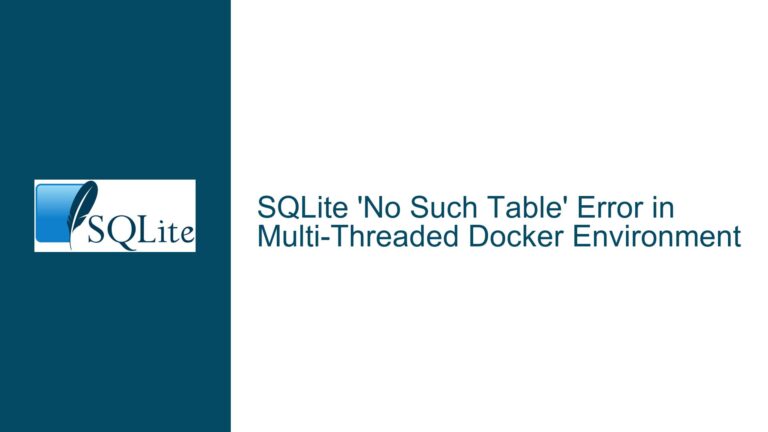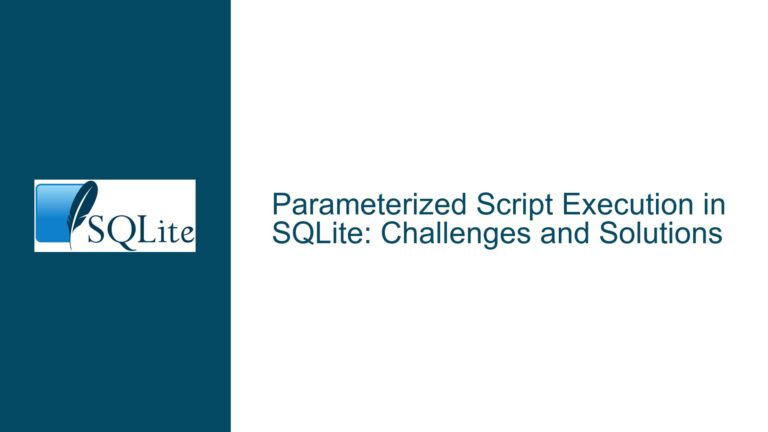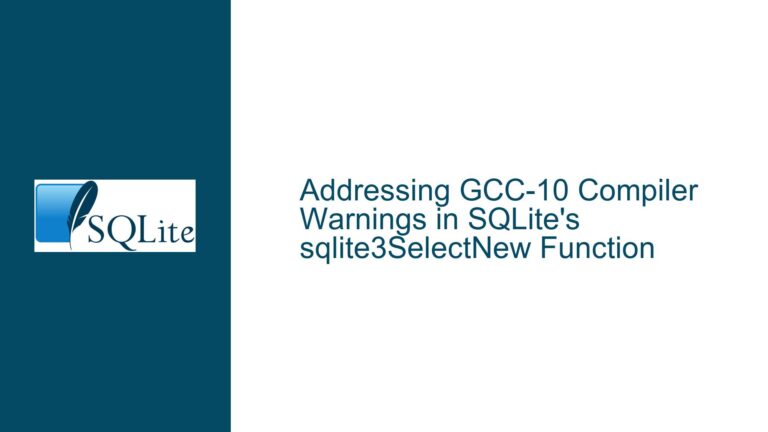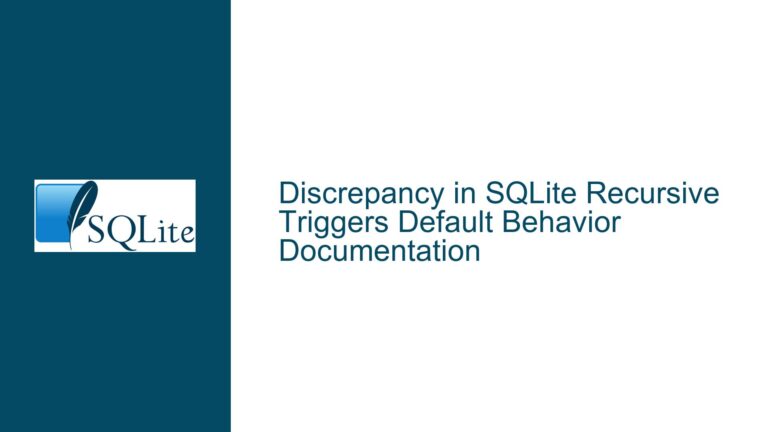Integrating CSV Extension into SQLite Distribution Automatically
Automating CSV Extension Loading in SQLite SQLite is a powerful, lightweight database engine that supports a wide range of extensions to enhance its functionality. One such extension is the CSV extension, which allows users to import and export data in CSV format directly within SQLite. However, by default, the CSV extension is not automatically loaded…
